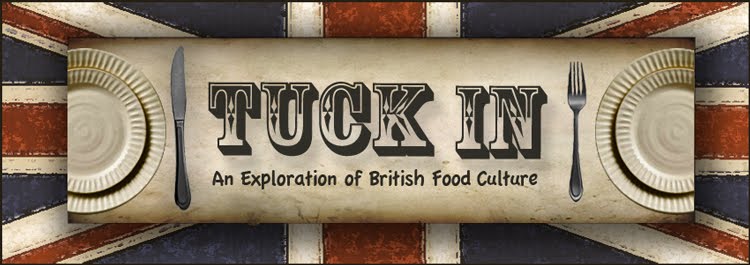Since I’ve started doing food research for this study, it is amazing how many “typically English” foods I’ve discovered that I would never would have labeled as such beforehand. And one of those is bread, one of the oldest and most important foods in the world’s history. I usually just figured bread was bread and you could get all kinds, anywhere. Although this may be true now, that used to not be the case in ancient times; the medieval serfs were not chowing down on ciabatta or naan. In fact, bread typical to a certain country or region is highly based on the land and the way people lived during that time. And to be honest, the history behind English bread is actually quite interesting and, as I have discovered, the sort of bread that people ate during the beginning of England’s history is still quite prevalent in England’s culture today.

Bread in England dates all the way back to around 400 AD when the Germanic Anglo Saxons invaded England. At the earliest times, people ate bland, unleavened bread but it wasn’t long before leavened bread was consumed. This leavening process was either done by using the yeasty foam from the ales produced (beer barm), or by making ”levain bread”. This was made with a pre-ferment sourdough starter of water and flour that was naturally risen from the yeast in the air. The starter was then, after a long period of time, added to the rest of the bread ingredients as the means of leavening, and baked. Aaaand that’s enough of my nerdy fascination with baking science.
But the types of bread produced were also based on the crops the land could sustain. Unlike Italy, with its lush fields of wheat, Britain could not sustain bountiful wheat harvests. Because of this, bread had to be made with other grains like barley, peas, beans, rye, and corn. The result of this mixture was what they called “black bread”, and was consumed by the lower class. The rich however could afford the all-wheat sourdough. And this system of class defined by bread eaten remained throughout the medieval ages; wheat wasn’t a bountiful crop in England until the 1900s, at which point all people could afford the top quality bread. But regardless of class, bread was equally important to all because it was such a filling and, for the lesser quality varieties, cheaply produced source of food, eaten with every meal.
So, as a Londoner for the past 6 weeks, I have noticed that bread is still a great mainstay in the British diet, and I have taken great advantage of this. No longer are the days of a loaf of Wonder. Now I seek out the greatest of London’s bakeries for fresh artisanal loaves. I happily carry the carefully wrapped loaves home and gently place them in the kitchen cupboard. Every morning, I find great joy in slicing my lovely loaf for the toaster and smelling the yeasty air that emanates as the bread heats. Then I give it a nice smear of jam and savor every chewy and moist, yet crunchy-edged bite. In fact, British food writer Nigel Slater claims that nobody can make toast like the Brits and that “Toast is our offering to the world gastronomy.”
And furthermore, I have noticed that the bread options very much stick with the British medieval types and in many of the bakeries I’ve visited, I actually see very few foreign bread options (Italian, French, etc.) There is always regular sourdough or country white, but the array of brown breads, multiseeded breads, levain, rye, malt, and alternative-to-wheat grain breads are really quite high. And I’ve enjoyed trying all of these. In my time here, I’ve indulged in sourdough, wheat-germ levain, sunflower/pumpkin/spelt, and classic brown bread, all of which are seen in the pictures. I usually polish them off before they can go stale but if I ever do leave a loaf sitting out too long, I’ll be sure to try out this beautiful English invention that makes use of stale bread. Bread and butter pudding: indulgent and rich, yet so simple and economical…you can’t get more British than that.




No comments:
Post a Comment